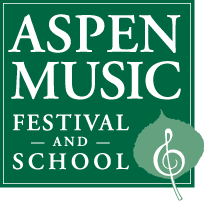« Cruise Control | Main | Healthy But Strained »
July 24, 2006
The Greater Niche Theory...
by Douglas McLennanLast week Disney's movie studio laid off 650 people and drastically reduced the number of movies it makes in a year (the irony of the announcement being made in the same week that the studio scored the biggest box-office in history wasn't lost on most observers).
Everywhere you look, producers of "popular" culture are scrambling to reinvent the ways they do business. The movie industry's best year at the box office wasn't last year or five years ago or 20 years before that; it was the 1940s. At the turn of the 1900's there were more touring theatre companies in America than at any time since. Radio's biggest audiences were decades ago.
There may be many more magazines no than there used to be but even the most popular of them attract a fraction of what they did 20 years ago (our perceptions are slow to change, though. People magazine, widely thought of as mass market, sells about 3.5 million copies a week - reaching only about 1-2 percent of the population, while the New Yorker, considered a niche publication, sells 1.1 million).
TV has also changed; top rated shows now get a fraction of the audiences they used to back in the 70s. And music: of the 100 best-selling albums of all time how many were released in the past five years? None. Where the biggest bestselling books used to spend months at the top of the charts, now it's rare for a book to stay there for more than a few weeks.
Is it that we've gone off culture? Not at all; it's a major American industry and the country's top export to the rest of the world.
The 1990s saw what was arguably the biggest expansion in the arts in America in history, with hundreds of new performing arts centers, concert halls and museums being built and thousands of new arts companies of all shapes and sizes. Audiences for what was traditionally call "high" culture have not experienced anywhere near the declines that "pop" culture has. In a world of niche cultures, it may turn out that some of the biggest niches are arts niches like classical music.
The news business may be an interesting parallel. Newspapers are under intense pressure right now. Their print circulation has been declining for years and the traditional print business model doesn't work like it used to. But it isn't that newspapers are less popular; when you factor in the online audience, newspaper readership has soared in the past decade. It's just that the business model hasn't yet adapted.
TV news has also seen declines in traditional viewership, but new viewers haven't been captured with web operations. As ratings have declined, TV news has reinvented itself out of the very thing we would have considered news 20 years ago in favor of nightly episodes of fire and crime tales in some odd infotainment spectacle.
Look at the top of the classical music charts and very little of what you see is what would have been considered "classical" music 20 years ago. It's a mix of crossover music that doesn't reflect what most orchestras consider their core repertoire. Look at the growth in most orchestra seasons and it's coming largely from pops/crossover concerts rather than the traditional stuff. So the question is: is classical music like the newspaper business, with a healthy audience waiting to find a new business model? Or is it like the TV news business reinventing itself out of what it has traditionally done well?
Posted by mclennan at July 24, 2006 06:13 PM
COMMENTS
Post a comment
Tell A Friend


